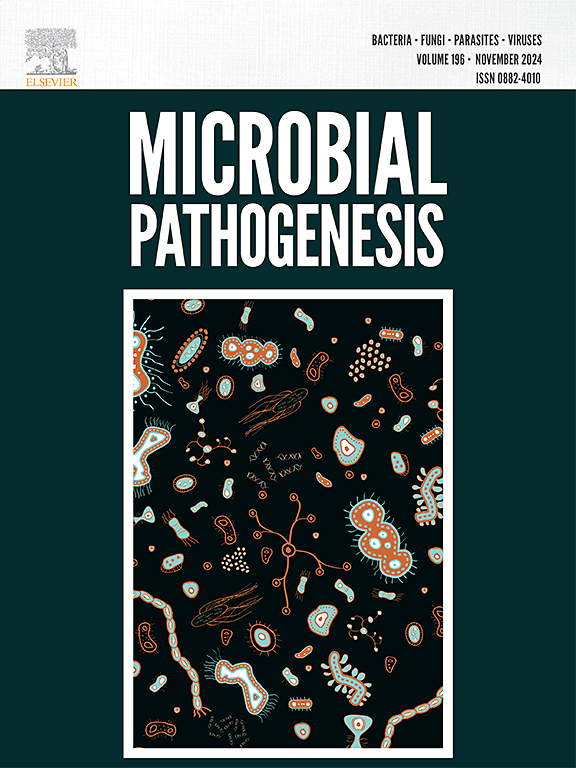非洲猪瘟病毒的宿主-病原体相互作用:免疫逃避和遗传抗性驱动预防和控制策略。
IF 3.5
3区 医学
Q3 IMMUNOLOGY
引用次数: 0
摘要
自一个多世纪前非洲猪瘟病毒(ASFV)在肯尼亚引起的第一次被描述的非洲猪瘟(ASF)暴发以来,没有广泛获得批准的商业疫苗来预防这种疾病。研究主要集中在该疾病的两个方面。首先,通过识别负责宿主免疫逃避的蛋白质来靶向病毒毒力因子,可以靶向开发候选疫苗。新的策略,包括基于mrna的疫苗和具有反向遗传的合成ASFV基因组,使安全、免疫原性和快速开发减毒活疫苗和亚单位候选疫苗成为可能。其次,通过确定对非洲猪瘟产生抗性的宿主决定因素。ASFV感染家猪和野猪,不论年龄和品种,死亡率几乎100%。疣猪和丛林猪是非洲猪瘟的天然宿主,尽管出现病毒血症,但没有表现出临床症状,这可能是由于不同的先天和适应性免疫反应、表观遗传修饰和环境因素所致。这种耐受性的遗传和表观遗传学研究,重点关注I型干扰素(IFN)诱导和NF-κB途径,这些途径通常是病毒免疫逃避蛋白的靶点。了解耐受/耐药动物和易感动物之间的这些相互作用和遗传变异,可以指导疫苗的开发和耐受/耐药品种的创造。本文综述了非洲猪瘟病毒的基因组、传播、发病机制、病毒的免疫逃避策略以及宿主对非洲猪瘟病毒的免疫反应。本文章由计算机程序翻译,如有差异,请以英文原文为准。

Host-pathogen interplay in African swine fever virus: Immune evasion and genetic resistance driving prevention and control strategies
Since the first described outbreak of African Swine Fever (ASF), which is caused by African swine fever virus (ASFV), in Kenya, over a century ago, no approved commercial vaccine is widely available to prevent the disease. Research has focused on two main aspects of the disease. Firstly, targeting the virus virulence factors by identifying proteins responsible for host immune evasion that can be targeted to develop vaccine candidates. Novel strategies, including mRNA-based vaccines and synthetic ASFV genomes with reverse genetics, enable safe, immunogenic, and rapid development of live-attenuated and subunit vaccine candidates. Secondly, by identifying host determinants that confer resistance to ASF. ASFV infects both domestic pigs and wild boars irrespective of age and breed, causing nearly 100 % mortality. Warthogs and bushpigs, natural hosts of ASFV, show no clinical signs despite developing viremia, likely due to distinct innate and adaptive immune responses, epigenetic modifications, and environmental factors. Genetic and epigenetic investigations of this tolerance, focusing on type I interferon (IFN) induction and NF-κB pathways, which are often targeted by viral immune evasion proteins. Understanding these interactions and genetic variations between tolerant/resistant and susceptible animals may guide vaccine development and the creation of tolerant/resistant breeds. This review covers the ASFV genome, transmission, pathogenesis, virus's immune evasion strategies, and the host immunological response against ASFV.
求助全文
通过发布文献求助,成功后即可免费获取论文全文。
去求助
来源期刊

Microbial pathogenesis
医学-免疫学
CiteScore
7.40
自引率
2.60%
发文量
472
审稿时长
56 days
期刊介绍:
Microbial Pathogenesis publishes original contributions and reviews about the molecular and cellular mechanisms of infectious diseases. It covers microbiology, host-pathogen interaction and immunology related to infectious agents, including bacteria, fungi, viruses and protozoa. It also accepts papers in the field of clinical microbiology, with the exception of case reports.
Research Areas Include:
-Pathogenesis
-Virulence factors
-Host susceptibility or resistance
-Immune mechanisms
-Identification, cloning and sequencing of relevant genes
-Genetic studies
-Viruses, prokaryotic organisms and protozoa
-Microbiota
-Systems biology related to infectious diseases
-Targets for vaccine design (pre-clinical studies)
 求助内容:
求助内容: 应助结果提醒方式:
应助结果提醒方式:


